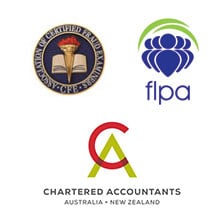Office Coordinator Found Guilty of Fraud
Melissa Emma Jean Ransley, an Office Coordinator of a family run business and a mother of four children was found guilty of one count of fraud in the District Court of Queensland on 16 July 2015 after withdrawing an earlier not guilty plea. The reported judgement of the earlier plea can be accessed here.
In sentencing Ransley to five and a half years imprisonment (eligible for parole after 22 months), Judge Kinghams’ commented:
“I’m going to sentence you now for the offence that you’ve pleaded guilty to on an earlier occasion, and that ‘s one count of fraud as an employee to the value of $30,000 or more. This is a most serious offence. It occurred when you were aged between 34 and 38 years. You are now a 40 year old woman. You came to work with your employer with a good work history and you assumed a responsibility of trust as an office coordinator, with increasing involvement in accounts management.”
Her Honour commented further:
“the reason this offence is so serious is the breach of that significant trust that is placed in you as an employee. You offended over a three-year, eight-month period, so almost four years. You used your position within a family company that employed 40-odd employees. You used that position to manipulate payments to or from suppliers, and in the process you received into a number of accounts a large amount of money: $249,876.70, involved in 62 transactions. As a result of payments that you made, the total loss to the company, not including the audit costs, which would have been in the tens of thousands themselves, was $194,665.38. Your offending was discovered when you went on leave”.
“The aggravating features here are the significant breach of trust given your role within the company; the lengthy period over which you offended; the amount involved ; and the amount to which the company was out of pocket – and I do add there the costs involved for the company in investigating your fraud, given they were not insured – the nature of your deception; the number of transactions; the number of accounts that you used; and the movement of money between accounts. All of these indicate a very high level of deception. It’s important to note that on each occasion that you did it – whether it was organising for the money to go into an account or moving it from one account to another every time you did that, that was a criminal act”.
In respect of the broader impact of the fraud, his Honour also commented:
“The potential for impacting on the company was large, given it was a company with a large number of employees. Had there been an impact on relationships that couldn’t have been repaired, that might have had more serious consequences. I imagine that it was a very difficult period for the directors of the company, but also for the employees to work through that.”
The fraud investigation expertise of Forensic Accounting Qld is being called on with an increased regularity, which we find surprising in today’s environment of increased fraud awareness. In our experience, we note that not all incidences of fraud are reported to the Police or necessarily taken to Court, rather are dealt with on an informal basis.
In our opinion, all fraud matters should be reported. We have been involved in matters where the fraud perpetrator has been dealt with on an informal basis and has then moved to a subsequent employer to repeat offend. The reality is that the economic and social impact of fraud extends significantly beyond the boundaries of the victim business and the immediate families, rather extends to the broader community.
The importance of having appropriate and effective internal controls in a business can not be emphasised enough and are paramount to business survival.
This case highlights the importance of engaging the correct professional help at the first indication of an anomaly or any fraud behavioural red flag[1] and having a Certified Fraud Examiner (“CFE”) on your team will give you the best possible chance of achieving a successful prosecution and maximising a civil recovery in any occupational fraud. The CFE credential denotes proven expertise in fraud prevention, detection and deterrence.
The ACFE[2] is the world’s largest anti-fraud organization and premier provider of anti-fraud training and education. Together with more than 75,000 members, the ACFE is reducing business fraud worldwide and inspiring public confidence in the integrity and objectivity within the profession.
CFEs around the world help protect the global economy by uncovering fraud and implementing processes to prevent fraud from occurring in the first place.
[1] 2014 ACFE Report to the Nations: http://www.acfe.com/rttn-red-flags.aspx



